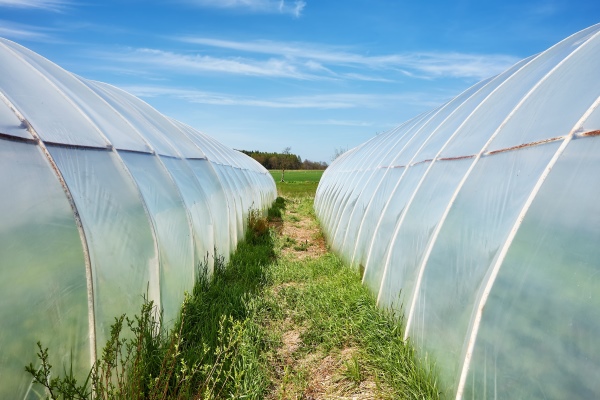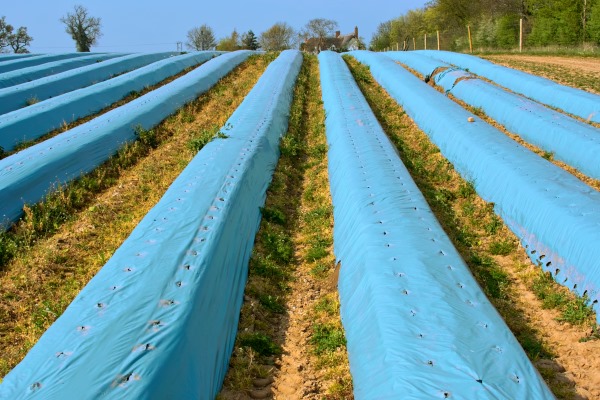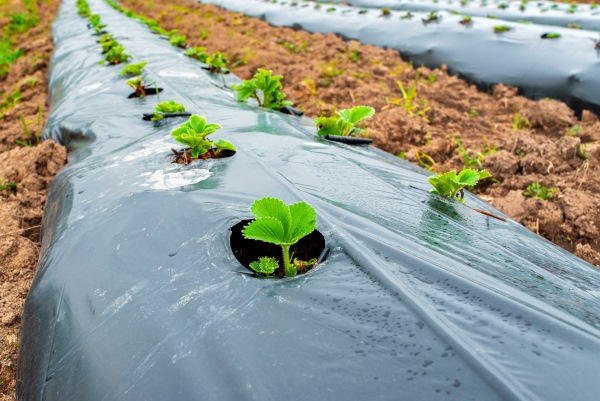
Crop protection is crucial for ensuring food security and the economic viability of farming. Weather-related challenges, such as frost, excessive rain, and intense sunlight, can severely damage crops, leading to significant financial losses for farmers and gardeners. These adverse conditions can hinder plant growth, reduce yields, and even destroy entire harvests. In response to these challenges, polythene sheeting emerges as an effective solution. This versatile material provides a robust barrier against various weather conditions, helping to safeguard crops. By understanding the benefits and applications of polythene sheeting, farmers can enhance their ability to protect and nurture their crops.
Understanding Polythene Sheeting
Polythene sheeting is a versatile plastic material used extensively in agriculture. It comes in various types, including low-density polyethylene (LDPE) and high-density polyethylene (HDPE), each offering different levels of strength and flexibility. The key properties of polythene sheeting include its durability, which ensures long-lasting protection; flexibility, allowing it to cover different crop structures easily; and transparency, which permits sunlight to reach the plants while shielding them from harmful UV rays. Additionally, polythene sheeting is resistant to water and chemicals, making it an ideal choice for protecting crops in diverse weather conditions.
Benefits of Using Polythene Sheeting for Crop Protection
Insulation and Temperature Regulation
 Polythene sheeting plays a vital role in maintaining optimal temperatures for crop growth. By acting as an insulative barrier, it helps to keep the warmth in during colder periods, preventing frost damage and ensuring that crops remain at a stable temperature. This is particularly important in early spring and late autumn when unexpected cold snaps can devastate young plants. The ability of polythene sheeting to regulate temperature creates a microclimate that promotes healthy growth and extends the growing season, allowing farmers to produce crops beyond the usual seasonal limitations.
Polythene sheeting plays a vital role in maintaining optimal temperatures for crop growth. By acting as an insulative barrier, it helps to keep the warmth in during colder periods, preventing frost damage and ensuring that crops remain at a stable temperature. This is particularly important in early spring and late autumn when unexpected cold snaps can devastate young plants. The ability of polythene sheeting to regulate temperature creates a microclimate that promotes healthy growth and extends the growing season, allowing farmers to produce crops beyond the usual seasonal limitations.
Moisture Control
Effective moisture management is another significant benefit of using polythene sheeting. It helps in preventing excessive moisture loss from the soil, maintaining a consistent level of hydration essential for plant health. During heavy rains, the sheeting acts as a protective layer, preventing waterlogging and the associated root diseases that can occur in overly saturated soils. This dual function ensures that plants receive adequate water without the risk of drowning or dehydration, contributing to more stable and predictable crop yields.
UV Radiation Protection
Polythene sheeting also provides crucial protection against UV radiation. By shielding crops from harmful UV rays, it prevents sunburn and other damage that can impair plant health. Simultaneously, the transparency of the sheeting allows beneficial sunlight to penetrate, which is essential for photosynthesis and growth. To enhance its effectiveness outdoors, polythene sheeting may include an ultraviolet inhibitor. This addition significantly delays the degradation of the material when exposed to sunlight and protects the covered crops from UV damage. This dual protection helps in maintaining plant vitality and improving overall crop quality.
Practical Applications of Polythene Sheeting in Agriculture
Greenhouses and Polytunnels
Polythene sheeting is extensively used in the construction of greenhouses and polytunnels, providing a cost-effective and efficient solution for crop protection. Greenhouses and polytunnels covered with polythene sheeting create controlled environments where temperature, humidity, and light can be managed to optimise plant growth. This allows for the extension of growing seasons, enabling farmers to cultivate crops earlier in the spring and later into the autumn. As a result, crop yields improve significantly, and the variety of plants that can be grown increases, leading to greater profitability and resource efficiency for farmers.
Mulching
 Mulching with polythene sheeting is another practical application that offers numerous benefits for agriculture. By covering the soil with polythene, farmers can effectively retain soil moisture, reducing the need for frequent watering and ensuring consistent hydration for crops. Additionally, this method helps in weed control by blocking sunlight, which inhibits weed growth and reduces competition for nutrients. The advantages of mulching are particularly notable in various weather conditions, as it provides a stable environment for plants, protects against soil erosion, and maintains soil temperature, thereby enhancing overall plant health and productivity.
Mulching with polythene sheeting is another practical application that offers numerous benefits for agriculture. By covering the soil with polythene, farmers can effectively retain soil moisture, reducing the need for frequent watering and ensuring consistent hydration for crops. Additionally, this method helps in weed control by blocking sunlight, which inhibits weed growth and reduces competition for nutrients. The advantages of mulching are particularly notable in various weather conditions, as it provides a stable environment for plants, protects against soil erosion, and maintains soil temperature, thereby enhancing overall plant health and productivity.
Row Covers and Cloche Systems
Polythene row covers and cloche systems are valuable tools for protecting crops from pests and extreme weather conditions. These covers create a physical barrier that shields plants from insects, birds, and other pests, reducing the need for chemical pesticides. They also offer protection against harsh weather, such as heavy rains, strong winds, and sudden temperature drops. This is especially beneficial for small-scale and home gardeners who seek to maximise their crop yield and quality with minimal resources. The ease of implementation and effectiveness of polythene sheeting in these systems make it a practical choice for enhancing crop protection and ensuring a successful harvest.
In summary, polythene sheeting offers numerous benefits for crop protection, including insulation and temperature regulation, moisture control, and UV radiation protection. Its practical applications in greenhouses, mulching, and row covers make it an invaluable tool for farmers and gardeners. By utilising polythene sheeting, agricultural productivity can be significantly enhanced, safeguarding crops from adverse weather conditions and pests. Farmers and gardeners are encouraged to consider polythene sheeting as a practical, cost-effective solution to improve crop yields and quality.